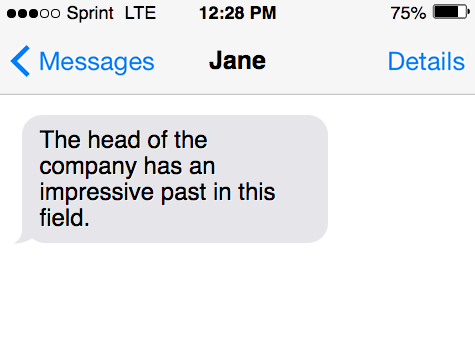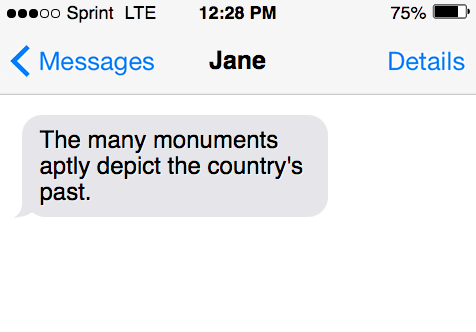What is the difference between passed and past? They sound identical in the English language. Although have entirely different meanings.
The English language is full of words that sound similar and have similar meanings and spellings. These words confuse everyone at some point in time.
These words are known as homophones. Even the most experienced or native English speakers confuse the two words. The words “passed” and “past” are examples of such words.
However, when it comes to usage in sentences and colloquially, it is easy to get confused between the two.

Difference between passed and past
We must first know their definitions to understand the difference between passed and past.
Passed: The word “passed” is the past tense of “pass.” It means “to have completed the act of passing.”
| Word | Definition |
| Passed (past tense verb) /pas/ | move or cause to move in a specified direction. |
| Past (adjective) /past/ | gone by in time and no longer existing. |
The most prominently used definitions are:
- To go by.
- To transfer something to someone or somewhere.
- To move in a specific direction.
- To complete something.
- To come to an end.
The word “past”
Past: The word “past” has various definitions as well. Some of the most prominently used definitions include:
- No more in existence.
- Gone by in time.
- On the other side of something.
The word “past” is most commonly used in the context of time.

When to use the word “past”
The word “past” can act like a verb, adjective, noun, preposition, and adverb.
Given the multiple forms it can take, the word can be used in various scenarios. The common theme across these forms is their relation to time.
Let’s look at some sentences to understand this better:
Sentence examples
- The past month was surprisingly productive. (Adjective)
- I have struggled with addiction in the past. (Noun)
- She entered the office at 15 past 11. (Preposition)
- He drove so slowly that even a cyclist raced past us. (Adverb)
When to use the word “passed”
The word “passed” indicates movement. It means to move ahead, beyond, or proceed further from something or someone. As a past tense of the word “pass,” passed works in a twin capacity. This means that “passed” can work as an intransitive verb as well as a transitive verb.
Let’s take a look at some examples to understand this better.

Sentence examples
- Our vacations passed delightfully.
- He passed by us silently.
- A long time has passed since we last saw John.
- Three weeks passed until I heard from the employer again.
Understanding homophones
Homophones are tricky. These are words that sound similar but have different (or almost different) meanings and spelling. Homophones, by virtue of being similar sounding, cause a lot of confusion in for native and non-native speakers of the English language.
It’s essential to understand homophones and the different meanings of two homophones to avoid writing and speaking incorrectly. In some cases, the wrong use can completely alter the meaning of a sentence.

Tricky cases when referring to movement
We have established that the word “passed” is used to refer to movement. And that the word “passed” is used to refer to physical movement.
However, it also refers to a movement from one condition or state to another. An example to further cement its meaning can be as follows:
- Kevin passed by us silently. This sentence shows physical movement that Kevin made.
- The company passed from a private ownership to a public ownership. This sentence shows that the status of a particular company moved from being a private entity to a public entity.
Uses like these can be confusing. In the example above, “passed” is used to refer to a state of change.
“Past” as an adjective
As an adjective, the word “past” means something happened in the past. Or is not the current state.
Examples
- Thomas Jefferson was one of the greatest past presidents of the United States.
- Over the past three months, I struggled financially, but I am doing better now.
“Past” as a noun
As a noun, the word “past” is quite close in its use to “past” as an adjective. As a noun, it means the period that preceded the present.
The difference between them lies in the fact that as an adjective, “past” references to a time that existed before.
However, as a noun, the word “past” is the time before the present.
In short, the difference is derived from the degree.

Examples
- The head of the company has an impressive past in this field.
- The many monuments aptly depict the country’s past.
- I have battled with issues in the past.
“Past” as an adverb
In the context of its adverbial use, the word “past” means to go beyond or to pass by. Some examples of this include the following.
Examples
- The cyclist rode past us in a rush.
- The quarterback ran past the defensive line.
- She walked past us without noticing that we were waving.
“Past” as a preposition
In the context of a prepositional use, the word “past” means something further than something else. It refers to being “beyond” in terms of the position.
Some examples to further illustrate the meaning include the following.
Examples
- She entered the party at 15 minutes past 7.
- It is way past your bedtime.
- I promised John I would meet him at the park at half past 4.
- I need you to assemble in the hall at precisely half past 10.
Is it “passed bedtime” or “past bedtime”
There’s a lot of confusing regard the the correct use of passed and past when it comes to common phrases and sentences.
“Passed bedtime” and past bedtime” are common examples of this.
In this case, we can see a reference to time.
The speaker is trying to convey that more than the usual bedtime has gone by. As such, the correct usage of “passed’ or “past” in this case would be “past bedtime.”
Example: Sarah’s mother scolded her for staying up past her bedtime.
Is it “walked passed” or “walked past”
“Walked passed” and “walked past” are another common example of everyday phrases that people get confused.
In this case, there is no reference to time. The correct use in sentences or speaking would be “walked past.”
This is because, in this particular phrase, the word “past” acts like an adverb and modifies the verb “walked.” “Walked passed” is, thus, incorrect use of the phrase.
References
- Passed vs Past
- Keeping up with Passed and Past
- Passed vs. Past: What’s the Difference?
- Passed vs. Past Explained
Inside this article
Fact checked:
Content is rigorously reviewed by a team of qualified and experienced fact checkers. Fact checkers review articles for factual accuracy, relevance, and timeliness. Learn more.
Core lessons
Glossary
- Abstract Noun
- Accusative Case
- Anecdote
- Antonym
- Active Sentence
- Adverb
- Adjective
- Allegory
- Alliteration
- Adjective Clause
- Adjective Phrase
- Ampersand
- Anastrophe
- Adverbial Clause
- Appositive Phrase
- Clause
- Compound Adjective
- Complex Sentence
- Compound Words
- Compound Predicate
- Common Noun
- Comparative Adjective
- Comparative and Superlative
- Compound Noun
- Compound Subject
- Compound Sentence
- Copular Verb
- Collective Noun
- Colloquialism
- Conciseness
- Consonance
- Conditional
- Concrete Noun
- Conjunction
- Conjugation
- Conditional Sentence
- Comma Splice
- Correlative Conjunction
- Coordinating Conjunction
- Coordinate Adjective
- Cumulative Adjective
- Dative Case
- Determiner
- Declarative Sentence
- Declarative Statement
- Direct Object Pronoun
- Direct Object
- Diction
- Diphthong
- Dangling Modifier
- Demonstrative Pronoun
- Demonstrative Adjective
- Direct Characterization
- Definite Article
- Doublespeak
- False Dilemma Fallacy
- Future Perfect Progressive
- Future Simple
- Future Perfect Continuous
- Future Perfect
- First Conditional
- Irregular Adjective
- Irregular Verb
- Imperative Sentence
- Indefinite Article
- Intransitive Verb
- Introductory Phrase
- Indefinite Pronoun
- Indirect Characterization
- Interrogative Sentence
- Intensive Pronoun
- Inanimate Object
- Indefinite Tense
- Infinitive Phrase
- Interjection
- Intensifier
- Infinitive
- Indicative Mood
- Participle
- Parallelism
- Prepositional Phrase
- Past Simple Tense
- Past Continuous Tense
- Past Perfect Tense
- Past Progressive Tense
- Present Simple Tense
- Present Perfect Tense
- Personal Pronoun
- Personification
- Persuasive Writing
- Parallel Structure
- Phrasal Verb
- Predicate Adjective
- Predicate Nominative
- Phonetic Language
- Plural Noun
- Punctuation
- Punctuation Marks
- Preposition
- Preposition of Place
- Parts of Speech
- Possessive Adjective
- Possessive Determiner
- Possessive Case
- Possessive Noun
- Proper Adjective
- Proper Noun
- Present Participle
- Prefix
- Predicate



